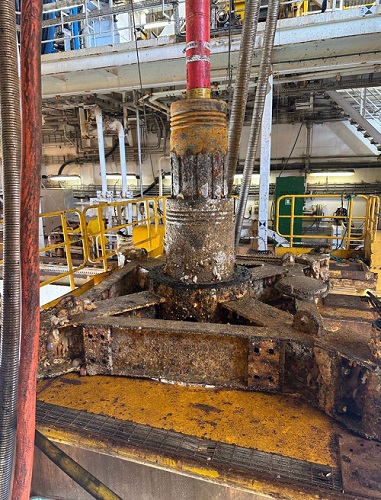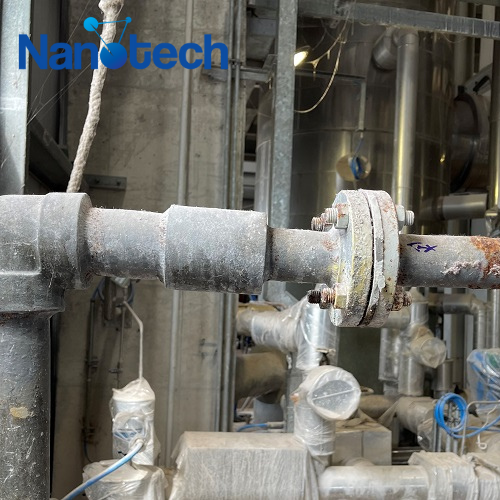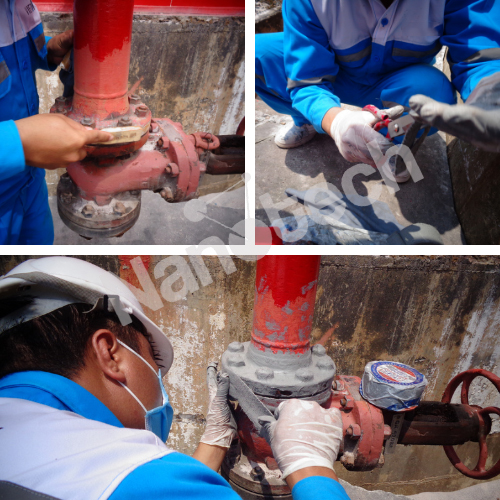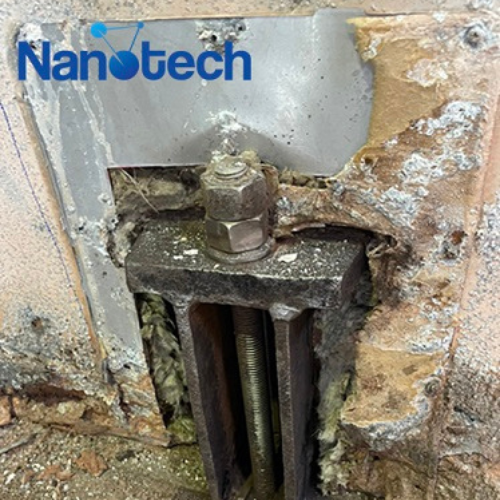- A valve is a device that regulates, controls, or controls the flow of a liquid (gas, liquid, liquefied solid, or slurry) by opening, closing, or partially obstructing various passages. Valves are technical accessories, but are often discussed as a separate category. In an open valve, fluid flows in the direction from higher pressure to lower pressure.
- Flange face is an important part of piping systems and mechanical equipment, where it is used to connect and fasten different parts together. Flanges are usually located at the ends of pipes or equipment and have holes for mounting with bolts. The main function of a flange is to create a tight connection between parts, allowing liquid or gas to flow through the system without leakage.
Valves and flanges often rust due to electrochemical corrosion, a natural process that occurs when metal is exposed to moisture and oxygen.
Here are some common causes of rust:
Contact with water and oxygen: Metals in valves and flanges, especially steel, work in water and in the presence of oxygen (oxygen gas in the air). This creates ideal conditions for electrochemical corrosion.
Fluid and gas flow containing corrosive substances: If the liquid or gas stream in the system contains corrosive substances such as salts, acids, or other chemical compounds, it can accelerate electrochemical corrosion. .
Third phase (electrolyte): The electrochemical corrosion process requires the presence of a third phase to conduct electricity. In this case, the third phase is usually water, and this water can make the metal conductive.
Galvanic corrosion: When two different metals come into contact in an electrically conductive medium (such as water), the difference between their potentials can lead to rust, called rust. galvanic corrosion. This usually happens when the valve and flange are made from two different metals.
Failure to properly maintain: If valves and flanges are not maintained properly, for example by not polishing, painting, or replacing as needed, they can become more susceptible to corrosion.
Measures to protect valves and flanges from rust:
To prevent rust and galvanic corrosion, maintenance and protection measures are often applied, including the use of anti-corrosion materials, anti-corrosion coatings, and the use of valves and flanges that feature High corrosion resistance, and periodic monitoring and maintenance to detect and correct failures early.
S2S anti-corrosion tape (Plid Wrap anti – Corrosion Tape is a modern and effective anti-corrosion solution today.
Plid Wrap anti – Corrosion Tape is an industrial base wrap impregnated with high performance S2S corrosion inhibitor that protects metal surfaces for up to 10 years.
Plid Wrap anti – Corrosion Tape provides long lasting adhesion to metal surfaces without the need for a primer.
Simple application process, low surface preparation required. Unlike other wraps, which require 50-55% overlap, Plid Wrap anti – Corrosion Tape requires 30% overlap, saving considerable time and cost.
Applicable in all environments: On the ground, underground and especially underwater.
Anti-corrosion coating
Anti-corrosion coating is a type of coating used to protect metal surfaces from corrosion and tarnish due to environmental impacts. Anti-corrosion coatings play an important role in protecting and extending the life of metal structures and equipment such as pipelines, drilling rigs, bridges, ships, and many other industrial applications.
More articles for reference:
- Causes and solutions to prevent pipeline corrosion
- Current anti-corrosion solutions
- Application of 3D technology in anti-corrosion
Contact Info:
NANOTECH VIETNAM JOINT STOCK COMPANY
- Address: No. 1747 Vo Nguyen Giap, Ward 12, City. Vung Tau
- Tel: 0254.3515.786
- Fax: 0254.3515.786
- Email: info@nanotechvietnam.com
NANOTECH VIETNAM JOINT STOCK COMPANY
Address: No. 1747 Vo Nguyen Giap, Ward 12, Vung Tau City, Ba Ria – Vung Tau Province, Vietnam
Phone: 0254.3515.786 – 0778.828.879
Email: info@nanotechvietnam.com





